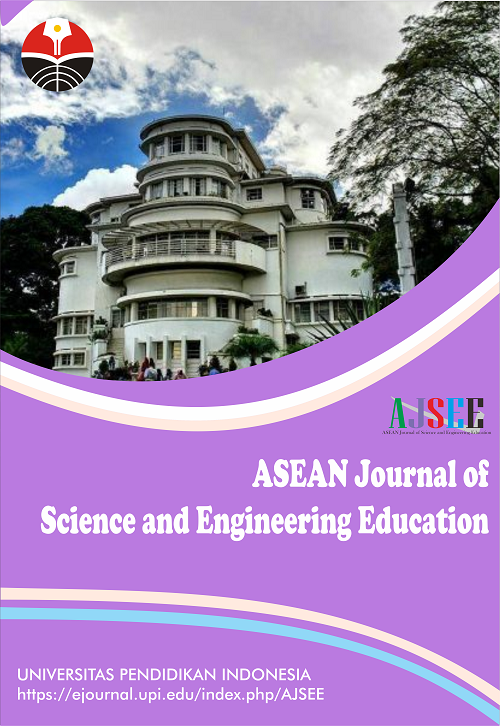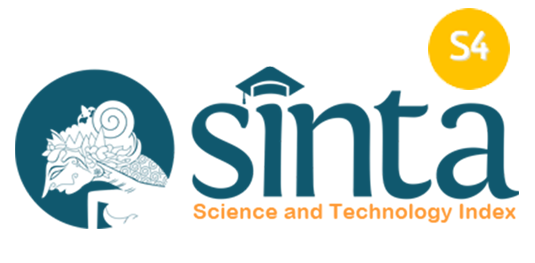Effectiveness of the Problem-Based Learning Model in Enhancing Biology Learning Outcomes among Senior High School Students
Abstract
This study investigated the impact of the Problem-Based Learning (PBL) model on biology learning outcomes among Grade X students. The research was motivated by the low academic performance observed in biology, largely attributed to limited student engagement under conventional teacher-centered instruction. Employing a quasi-experimental design with a Nonequivalent Control Group Design, the study involved two purposively selected classes: X MIPA 1 (experimental, PBL) with 36 students and X MIPA 2 (control, conventional) with 31 students. Data were collected through a pretest and posttest consisting of 20 multiple-choice items and analyzed using SPSS 26.0 for normality, homogeneity, and independent sample t-tests. Results revealed significantly higher posttest scores in the PBL group compared to the control group. These findings confirm that the PBL model effectively improves student learning outcomes in biology, fostering active participation, problem-solving skills, and deeper conceptual understanding.
Keywords
Full Text:
PDFReferences
Alam, M. A. (2023). From teacher-centered to student-centered learning: The role of constructivism and connectivism in pedagogical transformation. Journal of Education, 11(2), 154-167.
Al-Najar, H., Khalil, A., Bakar, S. A. A., and Aziz, N. S. A. (2019). Problem-based learning (PBL) versus lecture based learning (LBL): Effect on the development of critical thinking, problem solving and self directive learning skills in nursing students. Journal of Nursing and Care, 8(3), 2-11.
Amin, N. F., Garancang, S., and Abunawas, K. (2023). Konsep umum populasi dan sampel dalam penelitian. Jurnal Pilar: Jurnal Kajian Islam Kontemporer, 14(1), 15–31.
Andayani, A., and Gunawan, P. (2025). Implementation of active learning based on problem-based learning to improve critical thinking ability of junior high school students. Transformative Education Studies, 1(2), 38-45.
Astutik, S. (2022). Peningkatan kemampuan numerasi melalui problem based learning (Pbl) pada siswa kelas Vi Sdn Oro-Oro Ombo 02 Kota Batu. Jurnal Pendidikan Taman Widya Humaniora, 1(3), 561–582.
Braßler, M., and Sprenger, S. (2021). Fostering sustainability knowledge, attitudes, and behaviours through a tutor-supported interdisciplinary course in education for sustainable development. Sustainability, 13(6), 3494.
Chen, R. (2024). Exploring the effectiveness of problem-based learning as a constructivist approach in enhancing critical thinking skills in high school classes. Research and Advances in Education, 3(4), 26-32.
Djonomiarjo, T. (2021). Pengaruh model problem based learning terhadap hasil belajar. Jurnal Ilmu Pendidikan Nonformal Aksar, 05(01), 39–46.
Gunawan, I. K. A., Rati, N. W., and Sudatha, I. G. W. (2021). Model problem based learning meningkatkan hasil belajar IPA siswa sekolah dasar. Mimbar Pendidikan Indonesia, 2(2), 74–82.
Kansanen, P. (2003). Studying--the realistic bridge between instruction and learning. an attempt to a conceptual whole of the teaching-studying-learning process. Educational studies, 29(2-3), 221-232.
Kay, R., MacDonald, T., and DiGiuseppe, M. (2019). A comparison of lecture-based, active, and flipped classroom teaching approaches in higher education. Journal of Computing in Higher Education, 31(3), 449-471.
Manuaba, I. B. A. P., -No, Y., and Wu, C. C. (2022). The effectiveness of problem based learning in improving critical thinking, problem-solving and self-directed learning in first-year medical students: A meta-analysis. PloS One, 17(11), e0277339.
Marwah, H. S., Suchyadi, Y., and Mahajani, T. (2021). Pengaruh model problem based learning terhadap hasil belajar subtema manusia dan benda di lingkungannya. Journal of Social Studies, Arts and Humanities (JSSAH), 1(1), 42–45.
Maryanti, S., and Kurniawan, D. T. (2019). Pengembangan media pembelajaran video animasi stop motion untuk pembelajaran Biologi dengan aplikasi picpac. Jurnal BIOEDUIN: Program Studi Pendidikan Biologi, 8(1), 26–33.
Munna, A. S., and Kalam, M. A. (2021). Teaching and learning process to enhance teaching effectiveness: a literature review. International Journal of Humanities and Innovation (IJHI), 4(1), 1-4.
Osijirin, A. N., Edmond, U. V., and Sada, S. M. (2025). Enhancing student performance through practical teaching methods in introduction to computing sciences: A case study of the federal university of allied health sciences, Enugu, Nigeria. Journal Advance Education Philosophy, 9(7), 266-274.
Peranginangin, A. P. (2025). The application of problem-based learning model to improve students’ mathematical problem-solving skills in junior high school. Jurnal Info Sains: Informatika dan Sains, 15(01), 140-150.
Rahman, S. (2021). Pentingnya motivasi belajar dalam meningkatkan hasil belajar. Prosiding Seminar Nasional Pendidikan Dasar, 1(1), 289–302.
Setiawati, S. M. (2019). Telaah teoritis: Apa itu belajar?. Helper: Jurnal Bimbingan Dan Konseling Fkip Unipa, 35(1), 31–46.
Sewagegn, A. A. (2020). Learning objective and assessment linkage: Its contribution to meaningful student learning. Universal Journal of Educational Research, 8(11), 5044-5052.
Ulhaq, N. (2024). Upaya Meningkatkan hasil belajar siswa materi teks fiksi dan non fiksi melalui implementasi problem based learning dengan bantuan peta konsep menggunakan aplikasi canva bagi siswa kelas 6b Sdn 03 Klegen Semester II TH 2023/2024. Jurnal Ilmiah Pendidikan Dasar, 9(2), 836–846.
Wijnia, L., Noordzij, G., Arends, L. R., Rikers, R. M., and Loyens, S. M. (2024). The effects of problem-based, project-based, and case-based learning on students’ motivation: A meta-analysis. Educational Psychology Review, 36(1), 29.
Yasa, P. A. E. M., and Bhoke, W. (2021). Pengaruh model problem based learning terhadap hasil belajar Matematika siswa SD. Journal of Elementary School (JOES), 2(2), 152–159.
Yohana, L., and Lufri, L. (2022). Tingkat Korelasi serta persentase permasalahan motivasi, minat dan konsentrasi belajar siswa kelas XI MIPA dalam Pembelajaran Biologi di SMAN 6 Padang. Spizaetus: Jurnal Biologi Dan Pendidikan Biologi, 3(3), 80–88.
DOI: https://doi.org/10.17509/ajsee.v5i2.89041
Refbacks
- There are currently no refbacks.
Copyright (c) 2025 Universitas Pendidikan Indonesia

This work is licensed under a Creative Commons Attribution-ShareAlike 4.0 International License.














